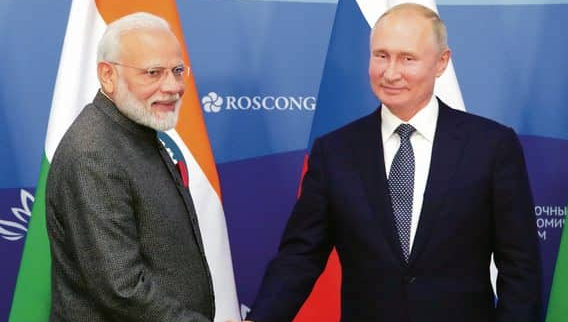India and Russia are talking frankly, but the “time-tested relationship” is clearly headed for greater challenges
Russia’s foreign minister, Sergey Lavrov, and external affairs minister, S Jaishankar, have reiterated their commitment to the bilateral relationship. But beneath the story of cordiality is a story of increasing differences on two key issues, visible during the joint press conference of the two ministers on Tuesday.
To buy our online courses: Click Here
The first is on the wider relationship with the United States (US) and China. Moscow sees Washington as a belligerent actor out to contain Russian influence and punish it through sanctions. This has pushed it towards Beijing, though Mr. Lavrov emphasized, in response to a question from this newspaper, that a military alliance with China was not on the cards.
Read More: Islamic state turns to Africa’s militants
New Delhi sees its partnership with Washington as an important security pillar, and views Beijing as the core problem. India, thus, has chosen to remain more aligned with the US — while keeping up its independent relationship with Russia, especially on defence. Till the US and Russia achieve a degree of rapprochement or Russia and China fall out, none of which are imminent, India will have keep striking this difficult balance.
On Afghanistan, Mr. Lavrov was unequivocal that the Taliban had to be a part of any sustainable peace process and power-sharing compact. India has reconciled itself to the changed dynamic — but New Delhi is approaching the peace process with its eyes open, skeptical of the possibility of any inclusive political settlement, and aware that neither the Taliban nor its patron across the Durand border, Pakistan (which Mr. Lavrov is now visiting, clubbed with his trip to India, a first for Russia ) is about to change its stripes. India and Russia are talking frankly, but the “time-tested relationship” is clearly headed for greater challenges.





